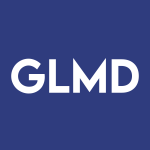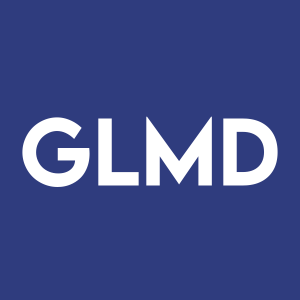Welcome to our dedicated page for Galmed Pharmaceu news (Ticker: GLMD), a resource for investors and traders seeking the latest updates and insights on Galmed Pharmaceu stock.
Galmed Pharmaceuticals Ltd. (GLMD) is a clinical-stage biopharmaceutical company advancing innovative therapies for liver, metabolic, and fibro-inflammatory diseases. This news hub provides investors and industry professionals with timely updates on the company's lead compound Aramchol, a novel SCD1 inhibitor being evaluated in late-stage clinical trials for non-alcoholic steatohepatitis (NASH).
Access official press releases and curated analysis covering clinical developments, regulatory milestones, and strategic partnerships. Our repository includes updates on Aramchol's unique mechanism of action targeting hepatic fat metabolism, patent filings for combination therapies, and progress in addressing complex liver pathologies.
Key content categories include clinical trial results, FDA communications, financial reporting disclosures, and scientific conference presentations. Bookmark this page for centralized access to Galmed's evolving research initiatives and business developments in the competitive NASH therapeutics landscape.
Galmed (NASDAQ: GLMD) announced a late-breaking abstract presentation at HEP-DART 2025 for Aramchol titled "Targeting SCD1 enhances activity of standard of care regorafenib in hepatocellular carcinoma." The poster will be presented on December 9, 2025 at 3:00 PM HST. Galmed reports preclinical data showing SCD1 inhibition augments regorafenib (Stivarga) activity via ATM-AMPK-autophagy signaling, providing translational rationale for a planned Phase 1/2 trial of Aramchol plus regorafenib in HCC and other GI cancers with enrollment planned to start in 2026. Galmed also plans a Phase 2 dose-expansion cohort to evaluate adding metformin to the combination.
Galmed (NASDAQ: GLMD) announced a new use patent in South Korea covering a combination of Aramchol and Madrigal Pharmaceuticals' Rezdiffra (resmetirom) for the treatment of non-alcoholic steatohepatitis (NASH/MASH) and liver fibrosis.
The company says this grant joins earlier patents in the United States, Europe, Canada and other jurisdictions and extends Aramchol's patent protection worldwide, with U.S. protection noted through July 2042. Galmed describes Aramchol as a Phase 3–ready candidate with reported fibrosis improvement and favorable safety and tolerability, positioning it for combination therapy development in MASH.
Galmed (Nasdaq: GLMD) issued a CEO letter on Dec 1, 2025 outlining clinical and financial progress for Aramchol. The company reported approx. $19.2 million cash at the end of Q3 2025 and a reported burn of ~$1.5M per quarter. Galmed highlighted Phase 3 ARMOR open‑label results showing fibrosis improvement at week 48: 65% (paired) and 100% (AI). The company is developing new sublingual and subcutaneous formulations, plans a Phase 2 MASH trial and intends to start a Phase 1/2 oncology trial with VCU in early 2026. Management emphasized disciplined capital use and continued clinical expansion of Aramchol.
Galmed Pharmaceuticals (Nasdaq: GLMD) reported third quarter 2025 results and a business update on Nov 26, 2025. Cash and marketable securities totaled ~$19.2M as of Sept 30, 2025. Net loss for Q3 2025 was $1.9M (‑$0.33 per share). R&D expense rose to $1.1M in Q3 2025, while G&A declined to $1.0M. Weighted average shares expanded to 5.46M for Q3 2025 from 829,500 a year earlier.
Clinical updates: top-line AM-001 Phase 1 bioavailability results were reported Nov 18, 2025, and a Nov 17, 2025 joint VCU study showed a 3‑drug combination (Aramchol, Stivarga, Metformin) significantly enhanced GI tumor cell killing in vivo and in vitro. The company raised ~$9.3M in 2025 via equity lines and ATM.
Galmed (Nasdaq: GLMD) reported top-line results from the AM-001 Phase 1 bioavailability study of Aramchol meglumine on November 18, 2025. In 30 healthy volunteers, the study found that Aramchol meglumine granules delivered approximately 5-fold (400 mg) and 3-fold (200 mg) greater bioavailability versus Aramchol free acid 300 mg tablets.
Galmed said the unexpected PK profile supports a once-daily 400 mg regimen for upcoming oncology Phase 2 studies planned for H1 2026, may improve long-term adherence, and could reduce drug cost of goods by ~50%. The company noted prior clinical exposure including 661 patients across six trials (up to Phase 3) and 82 healthy subjects dosed with Aramchol meglumine under a UK CTA.
Galmed (NASDAQ: GLMD) reported top-line preclinical results showing a 3‑drug combination of Aramchol, Stivarga® (regorafenib) and metformin produced a synergistic anti-tumor effect in GI cancer models both in vitro and in vivo. Galmed said Aramchol enhanced regorafenib-induced autolysosome formation, activated ATM/AMPK and inactivated mTORC1/2 pathways. New patent applications (US 63/786,370 and US 63/915,832) were filed and a Phase 1b trial combining Aramchol and regorafenib, with an expansion cohort including metformin, is planned to start early 2026 at VCU Massey. Galmed noted regorafenib patent expiries in Europe Aug 2028 and U.S. July 2032 and cited regorafenib sales of €458m in the first nine months of 2022.
Galmed Pharmaceuticals (Nasdaq: GLMD), a clinical-stage biopharmaceutical company, reported Q2 2025 financial results and significant strategic shifts. The company announced a new digital asset management strategy that could allocate up to 50% ($10 million) of cash reserves to crypto investments. Additionally, Galmed modified its agreement with Entomus s.r.o., reducing its role in the SEDDS formulation project to a potential 20% stake investment of up to $2 million.
Financial highlights include cash and equivalents of $20.7 million as of June 30, 2025, compared to $15.4 million at end-2024. The company reported a net loss of $2.5 million ($0.63 per share) in Q2 2025, versus $1.1 million loss in Q2 2024. R&D expenses increased to $1.1 million, up from $0.5 million year-over-year.
Galmed Pharmaceuticals (NASDAQ: GLMD) has announced a significant shift in its treasury management strategy, planning to invest up to $10 million (approximately 50% of its current cash reserves) in digital assets. The company's board has established a dedicated Crypto Committee to oversee crypto-related activities and is engaging Tectona Ltd. as its crypto treasury management advisor.
Additionally, shareholders approved an amendment to increase the company's authorized share capital from 50 million to 900 million ordinary shares. The new strategy aims to diversify Galmed's balance sheet through blockchain-based assets, including covered call options, staking, lending, and yield-generating protocols.
Galmed Pharmaceuticals (NASDAQ: GLMD) has discovered a proprietary pharmacodynamic biomarker signature for its lead drug candidate Aramchol through analysis of Phase 3 ARMOR study data. The newly identified 70-protein signature demonstrates Aramchol's potential beyond liver diseases, particularly in cardiometabolic and inflammatory conditions.
Key findings include significant reductions in systemic inflammation, cardiac stress, and atherosclerotic drivers. Notably, the study revealed a decrease in Atrial Natriuretic Peptide (ANP), a heart failure marker, and upregulation of KDM4C, an enzyme linked to liver fibrosis suppression. The discovery was made in collaboration with Proteas Health using advanced proteomics and AI technology.
This breakthrough positions Galmed to expand Aramchol's applications into multi-billion-dollar markets beyond MASH/NASH, while providing a unique companion diagnostic tool for enhanced clinical decision-making and potential strategic partnerships.


